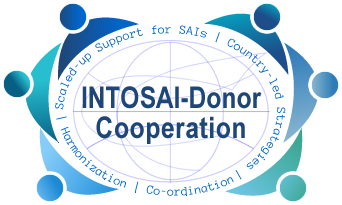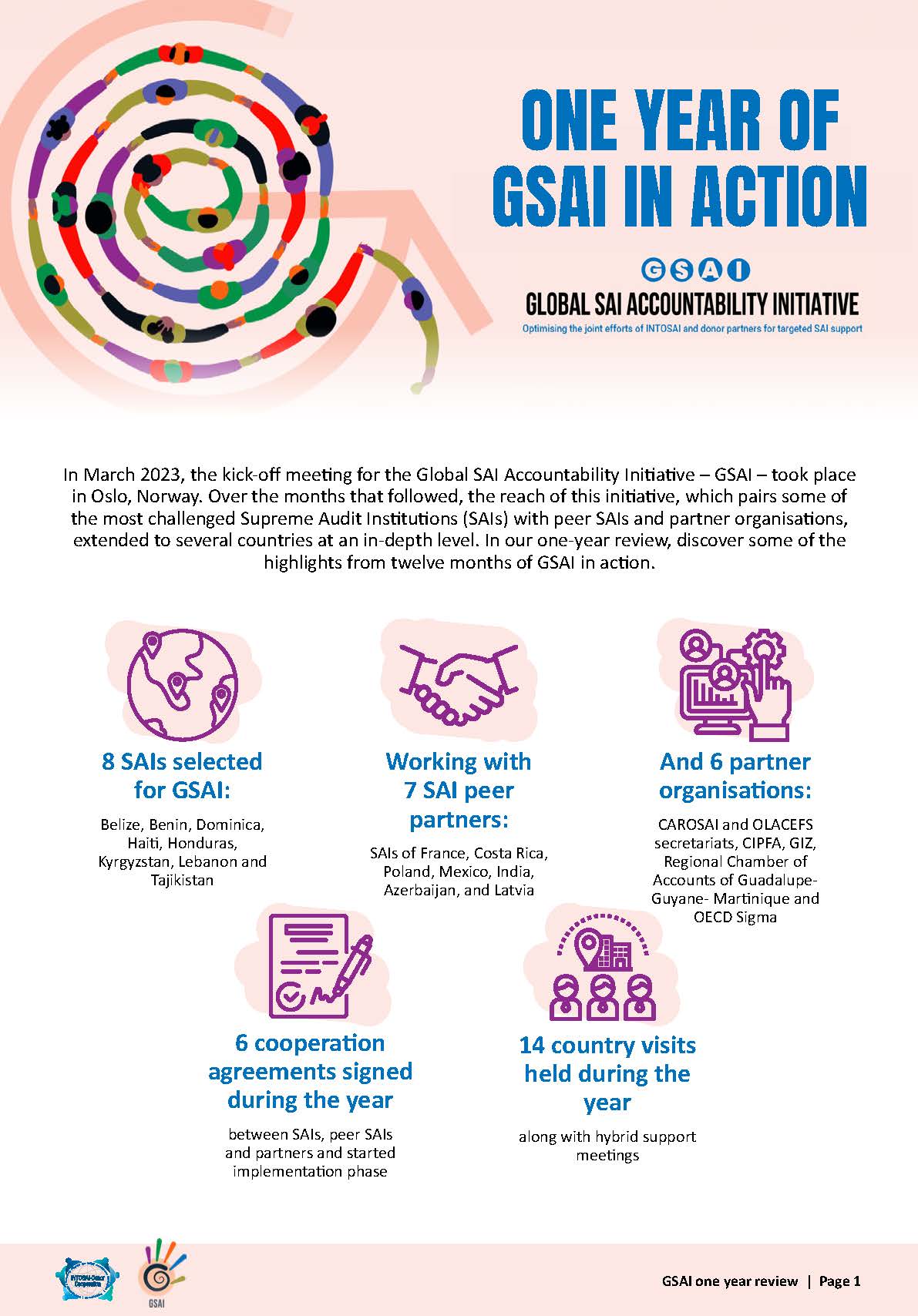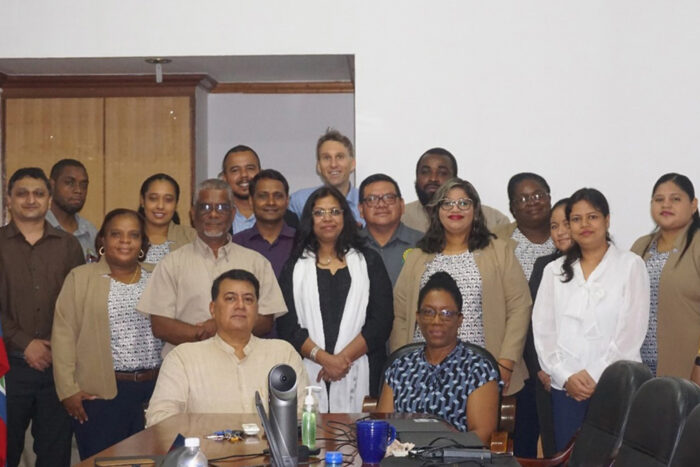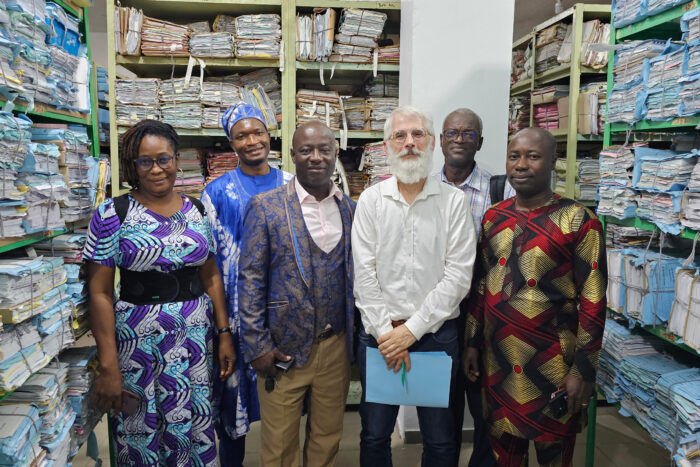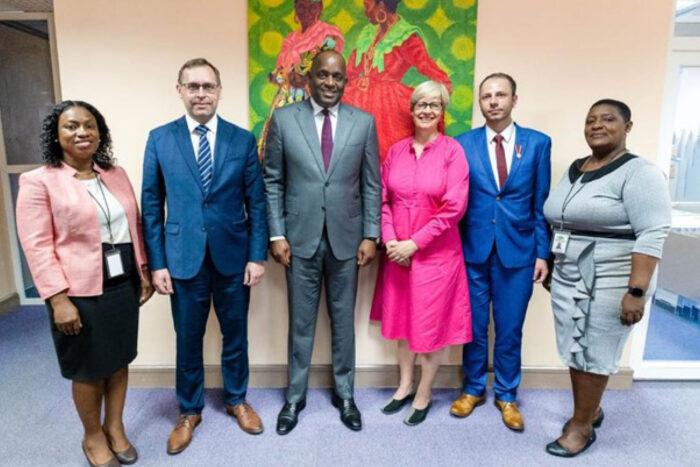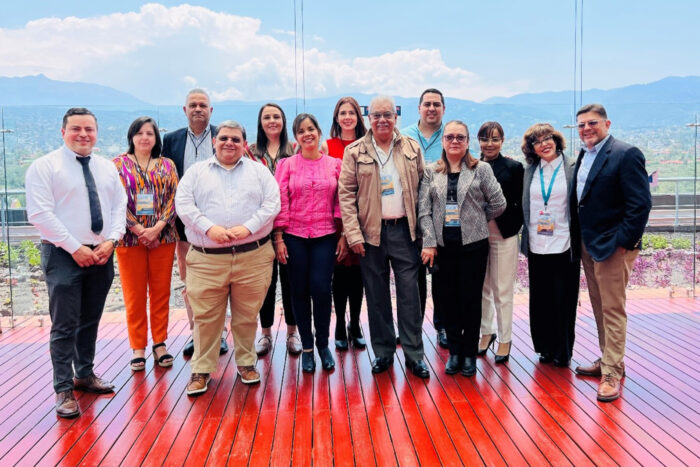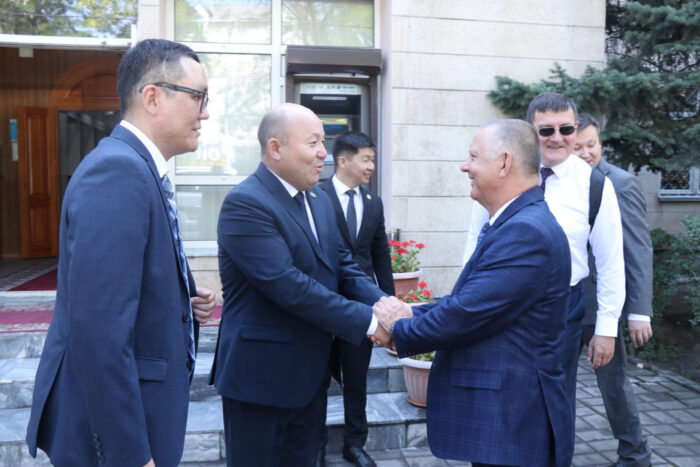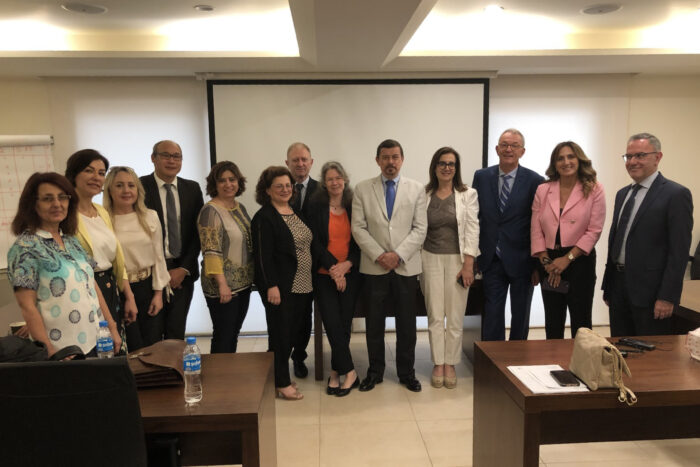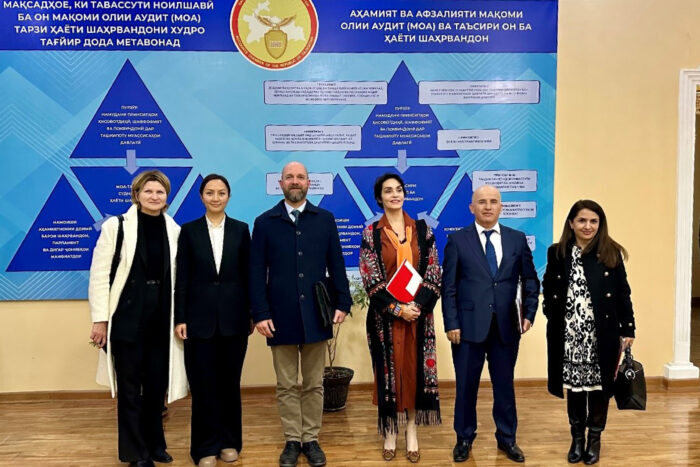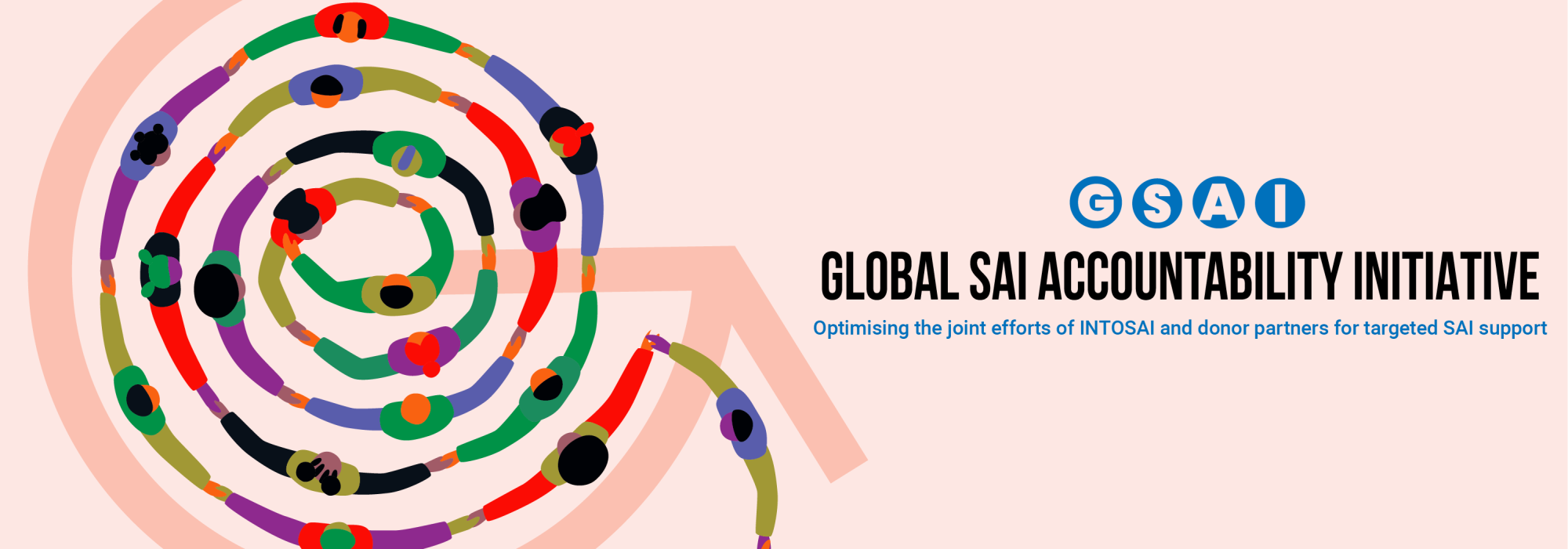
Global SAI Accountability Initiative “GSAI”
Why this initiative?
Progress towards the 2030 agenda for Sustainable Development requires strengthening of national systems for good use of public resources, in particularly in countries with weak public financial management and at risk of being left behind. Supreme Audit Institutions (SAIs) can play a key role in enforcing good governance and curbing corruption. Yet, several SAIs in challenging contexts struggle to play a strong role and have a potential to deliver more impactful audits.
The Global SAI Accountability Initiative (GSAI) aims to mobilize effective and well-coordinated support to SAIs in challenging contexts. These SAIs often operate in environments that face serious political, economic, and/or social challenges, and are therefore most in need of scaled-up and strengthened support. Several factors were considered during the selection of the beneficiary SAIs, including but not limited to:
- Being located in a country classified as a least developed country, other low income or lower-middle-income country on the OECD DAC list of ODA recipients
- Being located in a country designated as fragile according to the World Bank’s harmonized list of fragile situations
- Being located in a country which scoring in the two lowest quartiles of the Transparency International corruption perception index, or with no score available (no CPI data available)
- SAIs which have weak or medium overall performance, or with no performance data available (based on PEFA and OBI data)
- SAIs with no capacity development support or no prospects of short-term support
The initiative is expected to empower them to take forward their own capacity development and reach a new level of sustained capacities and performance over time. It was launched in 2022 by the INTOSAI-Donor Cooperation as part of its broad work to promote support, independence, performance and benefits of SAIs in developing countries.
One year of GSAI in action
In March 2023, the kick-off meeting for the Global SAI Accountability Initiative – GSAI – took place in Oslo, Norway. Over the months that followed, the reach of this initiative, which pairs some of the most challenged Supreme Audit Institutions (SAIs) with peer SAIs and partner organisations, extended to several countries at an in-depth level. In our one-year review, discover some of the highlights from twelve months of GSAI in action.
What is the main objective?
The fundamental objectives and principles of the GSAI are in line with the principles of the IDC strategy 2020-2030:
- Enabling the most challenged SAIs to enhance their capacities and performance through scaled-up, SAI-led and strategically based capacity development support.
- Establish mechanisms to ensure projects are developed in partnership between the SAI, donors and providers of support. This shall ensure coordination and customized support to the unique needs and opportunities of each SAI.

Ultimately, the GSAI initiative helps enhance the capacity and performance of SAIs by mobilizing stable long-term capacity development support and thereby contributing towards the achievement of the Sustainable Development Goal 16.6 – developing effective, accountable and transparent government institutions.

Who are the beneficiary SAIs?
The SAIs of Belize, Benin, Dominica, Haiti, Honduras, Kyrgyzstan, Lebanon and Tajikistan have joined the initiative. These SAIs have unique opportunities for development and needs of support.
The INTOSAI-Donor Cooperation requested the IDI to assist the partners to develop projects, coordinate efforts and enable synergies between countries. With funding from the European Union, the IDI has established “the GSAI programme” for this purpose.
The GSAI programme will develop tailored country projects for each of them in partnership with peer SAIs, donors and implementation partners. In each case, there are peer SAIs, regional organizations and experienced implementation partners interested to provide technical support, and various donors are expected to fund country projects.

What is the delivery approach?
The support provided to the targeted SAIs is geared around the whole strategic management cycle and ensures adherence to the principles of the IDC MoU. The GSAI programme has a high focus on the delivery of support through long term partnerships between the targeted SAI, the donor(s), and providers of support from the INTOSAI community. The approach seeks to utilize the resources from the different actors in the best possible way to increase the likelihood of success in their efforts to strengthen the capacity of these most challenged SAIs. Individual project groups will beare established to develop and implement sound tailored capacity development projects for targeted SAIs, consisting of the SAI itself and interested providers of support (e.g. donor organisations, INTOSAI regions and other INTOSAI bodies, peer SAIs).
The main four stages of the initiative are:
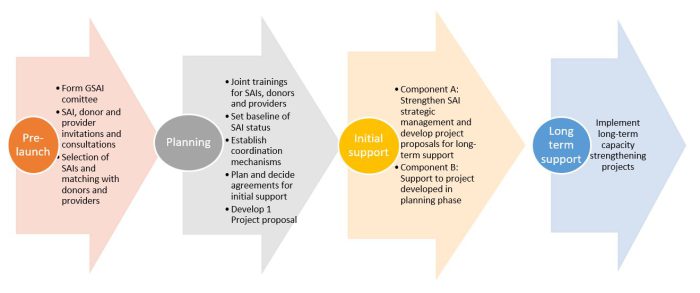
For detailed information read:
GSAI Terms of Reference
GSAI Terms of Reference appendices

What is the GSAI Committee?
A specialized committee oversaw the development of the GSAI approach and identified a list of the most challenged SAIs globally to include in the group. The committee have members from the donor community but has worked collaboratively and taken advice from the INTOSAI regions and relevant INTOSAI bodies.
The Committee includes the European Comission, USAID, NORAD, The World Bank and IADB, INTOSAI Bodies and Regions IDI, CBC, the regional secretariats from CAROSAI, CREFIAF, AFROSAI-E, OLACEFS, ARABOSAI, SAI USA and SAI India. The regional bodies are observers.
After the launch in 2022, the GSAI committee has taken an advisory role for the GSAI programme.
Who forms part of the GSAI programme team?
The GSAI programme team established within IDI includes:
- Eduardo Ruiz, Programme Manager
- Nazgul Esenbekovna Albanova, Manager
- Maria Herrero, Programme Coordinator
For more information about GSAI, please email us at gsai@idi.no

